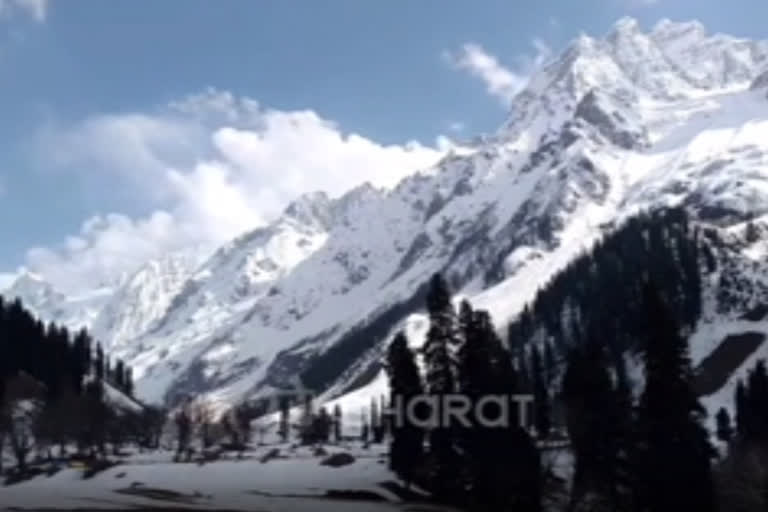Srinagar (Jammu and Kashmir): Kashmir is known for its beauty all over the world and it is often called the "Switzerland of Asia" by many. While it is famous for its landscape and water bodies, Kashmir is increasingly feeling the effects of global warming and climate change.
With the rampant industrialization and cutting down of forests, Kashmir is feeling its adverse impact, including the melting of glaciers at a significant rate.
After the Uttarakhand glacier bursting, which left many dead and hundreds missing, experts in Jammu and Kashmir feel that it is high time that the government pays some attention to the Thajiwas glacier in Sonamarg.
The environmental experts have said that the Thajiwas glacier has receded about 50 meters in the last three years which is a cause of concern, which if not taken care of can pose a danger to the people in and around Sonmarg area.
Talking with ETV Bharat, Dr Irfan Rashid, Assistant Professor, Geoinformatics Department, University of Kashmir said that most of the glaciers in Jammu and Kashmir that we have are showing retreat. "If we compare the images from 1948 and 2021, you can see that the glaciers are melting at an alarming rate. If the glacier bursts, it can create havoc for the people in the vicinity and the property," he said.
According to a survey, Jammu and Kashmir has almost 300 glaciers.
Melting of the glaciers in Jammu and Kashmir, and Ladakh is going to impact the water, food and energy security with the consequent adverse effect on the dependent livelihoods in the region, according to the experts.
Read: Army organises camp on snow avalanche awareness, rescue in J-K's Baramulla



